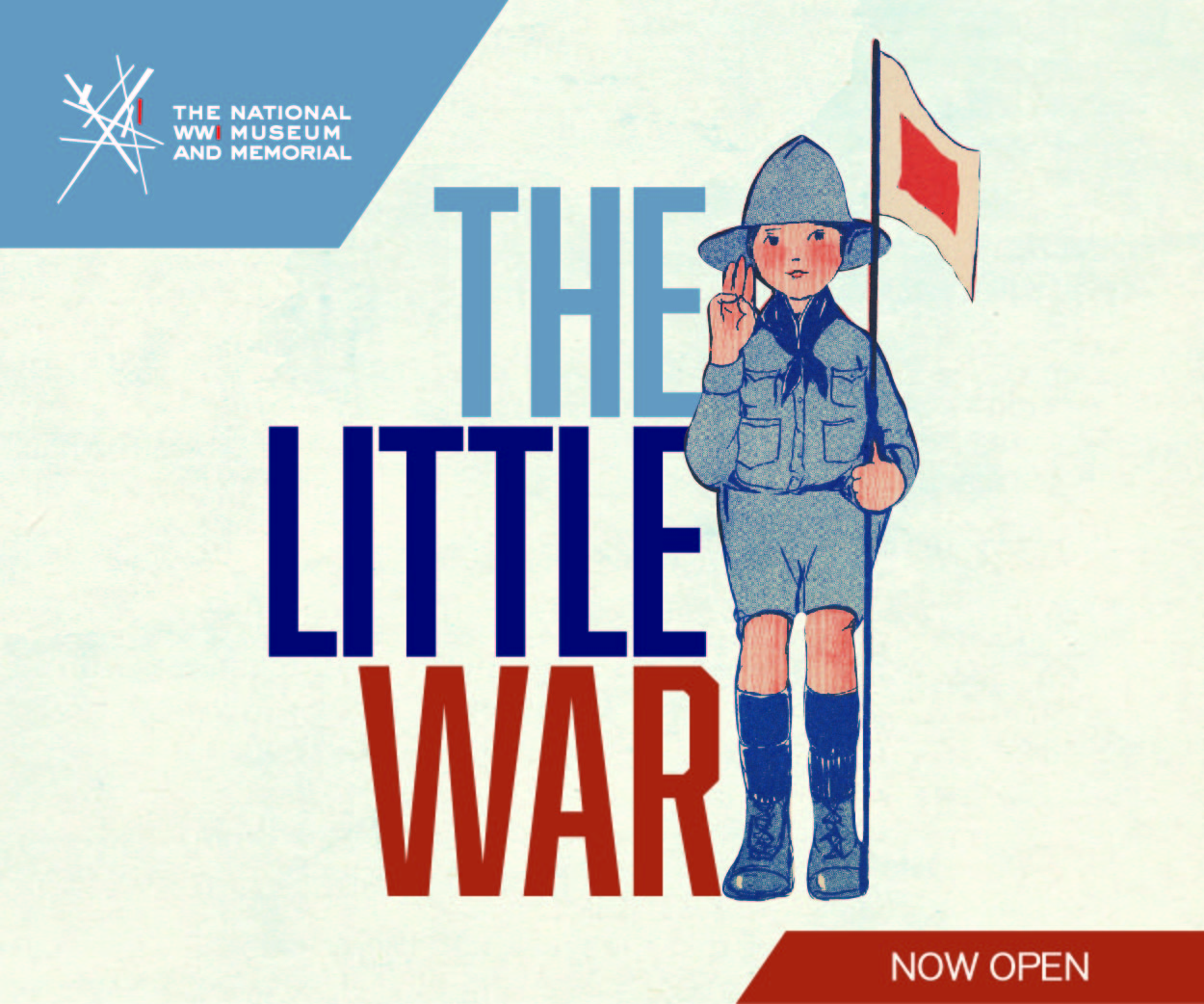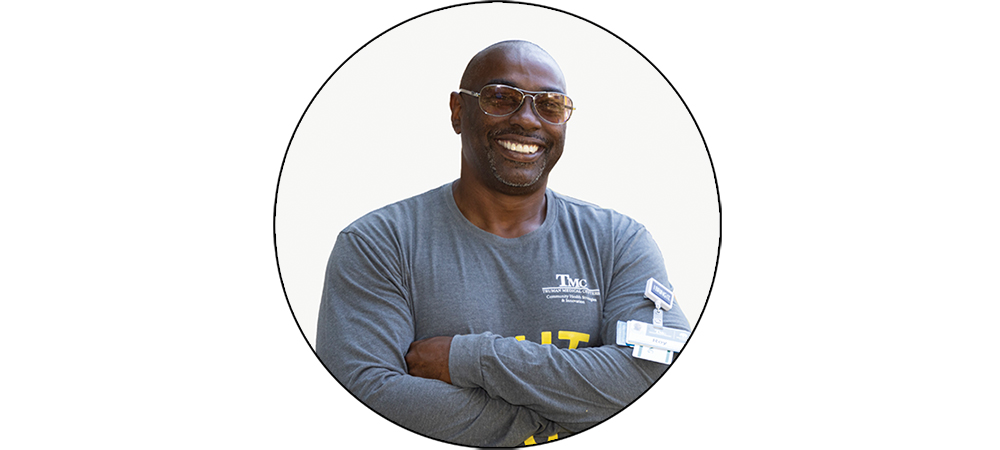From tireless first responders to an entire brigade of essential workers, people came together like no other when the pandemic hit Kansas City in late March. We scoured the metro to find heroic folks with stories you may not of heard. We’re sharing just a few of their stories.
Kristy Leahy and Her Parents Jim & Karen Whitehead
You know what they say—the family that essentials together, stays together. Such was the case for the Whitehead family whose daughter Kristy was on the frontlines of the pandemic as an ICU nurse at Advent Health Shawnee Mission. “She would talk to me frequently on the phone and I could tell at times she was exhausted and at times rather down and heartbroken due to the increase in deaths on her ICU unit,” says her mom Karen. “[Kristy] found herself being stretched from being the great nurse she is to taking the place of family who were not allowed visitation at such an extreme time.”
Karen, meanwhile, was a physical therapist working mainly in senior facilities under strict lockdown. With so many people depending on her, she was determined to be of service—despite an ever-evolving healthcare landscape. “Things at work were confusing. Some days my temperature was taken up to five times a day. It seemed like each and every day would bring different information and guidelines that changed how and what we needed to do,” she says. “Unfortunately, in attempts to keep them safe and follow guidelines, they had to become detached from some of their families and safety nets they heavily relied on.”
Whitehead patriarch Jim, meanwhile, was busy holding down the fort as a plant manager for a facility that manufactures plastic packaging. His 90+ employees depended on him to help keep them safe. “His facility has been going strong due to the high increase in demand for cleaning and sanitizer products,” Karen says. “Employee safety was the overriding concern and many new practices were implemented in order to keep the staff safe and comfortable coming to work on a daily basis.”
Roy Anderson
For weeks on end, Roy Anderson was a veritable touchstone for many people in the community as the main driver for Truman Medical Center’s Healthy Harvest Mobile Market. His job was multifaceted. First and foremost, as a driver he ensured fresh produce was delivered to people in need, but he was also a cashier, support ops, and played a large role in assisting with mobile COVID-19 testing sites with Truman’s wellness van. “I was hesitant at first, but if we’ve got all the tools to be safe—I thought let’s do it,” he says. “The community needs us and Truman likes to be in the community. My team is wonderful. Me going to work is like a pastime—it’s not even work.”
His team is just as complimentary of him. “People have been so excited to see him,” says Niki Lee Donawa, TMC’s chief community relations officer. “Who wouldn’t want to have someone bearing nutritious gifts when there isn’t a grocery store within five miles of their home? He’s become a lifeline for so many in this community during this pandemic and TMC couldn’t have done it without him.”
Anderson doesn’t take his job for granted either. He knows what he’s doing is making a difference by reaching a broad swath of food insecure folks in the community. “I just love helping people—and people realize that,” says Anderson who then reminded everyone reading this the importance of still wearing masks, gloves, and adhering to all important safety tips. Once a caregiver, always a caregiver, it would appear.
Ryan Maybee
The pandemic was Defcon One for J.Rieger and Co. That may have something to do with the fact that 80 to 90 percent of the company’s business is done through bars and restaurants, says Ryan Maybee, the vice president of sales and hospitality at the well-known distillery/drinkery. “So our revenue essentially went to zero overnight with everything closing,” he says. Their world-class new distillery—which had just opened a mere nine months earlier—also promptly closed up shop putting “the jobs of 60 to 70 people at immediate risk.”
For the team at Rieger and Co., it was a terrifying time. “We all had to frantically come up with a plan to stop the bleeding. The possibility of furloughing the majority of our company was real, but it was the last thing that we wanted to do,” says Maybee. “We had to act fast to come up with a plan.”
The plan? Pivoting on a dime to start producing and bottling hand sanitizer. “Real talk, it was a blur,” says Maybee. “We weren’t the first to do it, but we were definitely early, and how quickly we ramped up our production capacity still blows my mind today. The formula is relatively simple, but it was new territory for us, and I don’t think any of us really had any idea just how big the demand would become.”
The result? On the first day the company announced via social media about their new product line, they had a line of cars stretching more than two miles. “It was madness. But by the third day—while that demand did not subside—the word had spread to the point of us receiving requests from all over the metro for massive quantities for hospitals, essential services, labs, and first responders. It was all we could do to keep up with that demand.” The hand sanitizer was a bona fide hit and best of all, “We were able to keep everyone employed and get through the worst part of it,” he says.
Maybee is hopeful that by July, the distillery’s public spaces might be back open. Just maybe, says Maybee. “We have to rethink the guest experience at our distillery and ensure that we’re taking all the necessary precautions while also continuing to provide the highest levels of hospitality,” he says. “This experience has changed our company and the people involved with it forever.”
Michael Foust
Along with other notable chefs in the metro, Foust was one of the first to jump on the communal kitchen, pay-what-you-can approach to dining. His restaurant Black Sheep + Market shifted gears early on in response to the pandemic to ensure no one went hungry. “Our restaurant has always tried to build strong ties to the community,” says Foust. “Our signature meal became a grilled cheese sandwich, tomato soup, a fresh salad and a cookie.”
For more than a decade, Foust has strived to create a more equitable, sustainable food system, and this was just another proverbial notch in his culinary belt. But knowing that the restaurant industry won’t be resuming to “normal” anytime soon, Foust has started a new initiative. “While the staff and I may be opening the Black Sheep dining room back up, we realize the pandemic is not over and there are people who are still going to be hungry,” he says. “Going forward, I’m really excited to continue working with Chef Collective KC, a partnership formed during the past few months with an amazing team of players who have been working on community kitchen projects of their own.” (The group includes Howard Hanna of The Rieger, who created Crossroads Community Kitchen, and Brandon Winn, formerly of Webster House.)
The Chef Collective KC’s commissary kitchen (headed up by Winn) has been making more than 2,000 meals a week from inside Foust’s food truck—quirkily named Ethel. “The goal is to ramp up to 10,000 a week by the end of June, then 50,000 and eventually 100,000.” Foust and team hope to roll out their philanthropic approach to a regional, then national audience. “Right now, we’re continuing to beta test a model that we’re hopeful can create a new distribution system that reduces waste while feeding more people,” he says. By the time you read this, Foust hopes to have returned Black Sheep back to dining room service, “but now we’ll require reservations and a mask,” he says. “We’re also branching out, adding food service at Powell Gardens. And we’re really excited to welcome Rachel Rinas of Karbón to be our sous chef at the restaurant for a few months.”
Natasha Kirsch
Talk about a pet project! Natasha Kirsch’s The Grooming Project—which is now in its fourth year—found success as a not-for-profit school that taught poor and homeless moms and women the trade of dog grooming. Moreover, it also helped participants navigate life skills—everything from parenting to job readiness to finances. But then when the pandemic hit, everything changed. Kirsch was understandably worried.
She says, “We had just helped our graduates get off welfare and now their jobs were on hold with no pay,” she says. Thanks to a rally of financial support, students were able to receive emergency funding—including “$500 of emergency funding to each family in our graduate program as well as current students.” Chrome books were also provided for each student to switch to online classes. But the support didn’t stop there. Kirsch mentions a local student home from college who “made care packages for all of our students that included gift cards, lotion, socks, female products, and even cash!”
They’re getting back to business at The Grooming Project, but now see their furry clientele curbside. Kirsch is breathing a sigh of relief. “All of our graduates have gone back to their jobs, and the demand for pet grooming has skyrocketed,” she says. “We are booked out over two months at the school. We are still hoping our students, graduates, and staff stay healthy.”
Maxfield Kaniger
When the pandemic hit in March, it was all hands on deck for the team at Kanbe’s Market, an organization that focuses on getting fresh fruits and veggies to the metro’s food deserts. Just a couple months prior, the organization had moved into a gorgeous new warehouse which turned out to be a wonderful resource, says Max Kaniger. The organization swiftly found themselves with almost more donations from wholesalers than they could handle. To say they’ve increased their output would be an understatement. Before the pandemic they were distributing 6,000 to 8,000 pounds of produce. “In the past couple of weeks, we’ve increased to over 100,000 pounds—and we’ve added a few new drivers,” he says. Even though the coronavirus left Kaniger’s head “spinning,” feedback they’ve received over the last couple of months has been gratifying. They’re now distributing to nearly 60 different worthwhile organizations. “People are happy that we’re able to jump in, support and help,” he says.
Thanks to the USDA’s Farmers to Family Food Box program, which was launched in April, Kaniger was able to get even more food in the hands of folks who need it. The 25-pound boxes are filled to the brim with a variety of fresh fruits and veggies—and occasionally a smattering of dairy products. The ingenious, successful (and ever-evolving) program was extended past its initial six-week run, which gave Kaniger’s team an opportunity to “get a lot of food out into the community—three or four semi-trucks a week.”
Given the popularity of the Food Box program, it’s been a lot of work for Kaniger and crew, but the results have been amply rewarding. “That’s what we do. It was time to step up,” he says. “The gap has been there for a while, but we would not be able to feed people the way we are without that program.”








